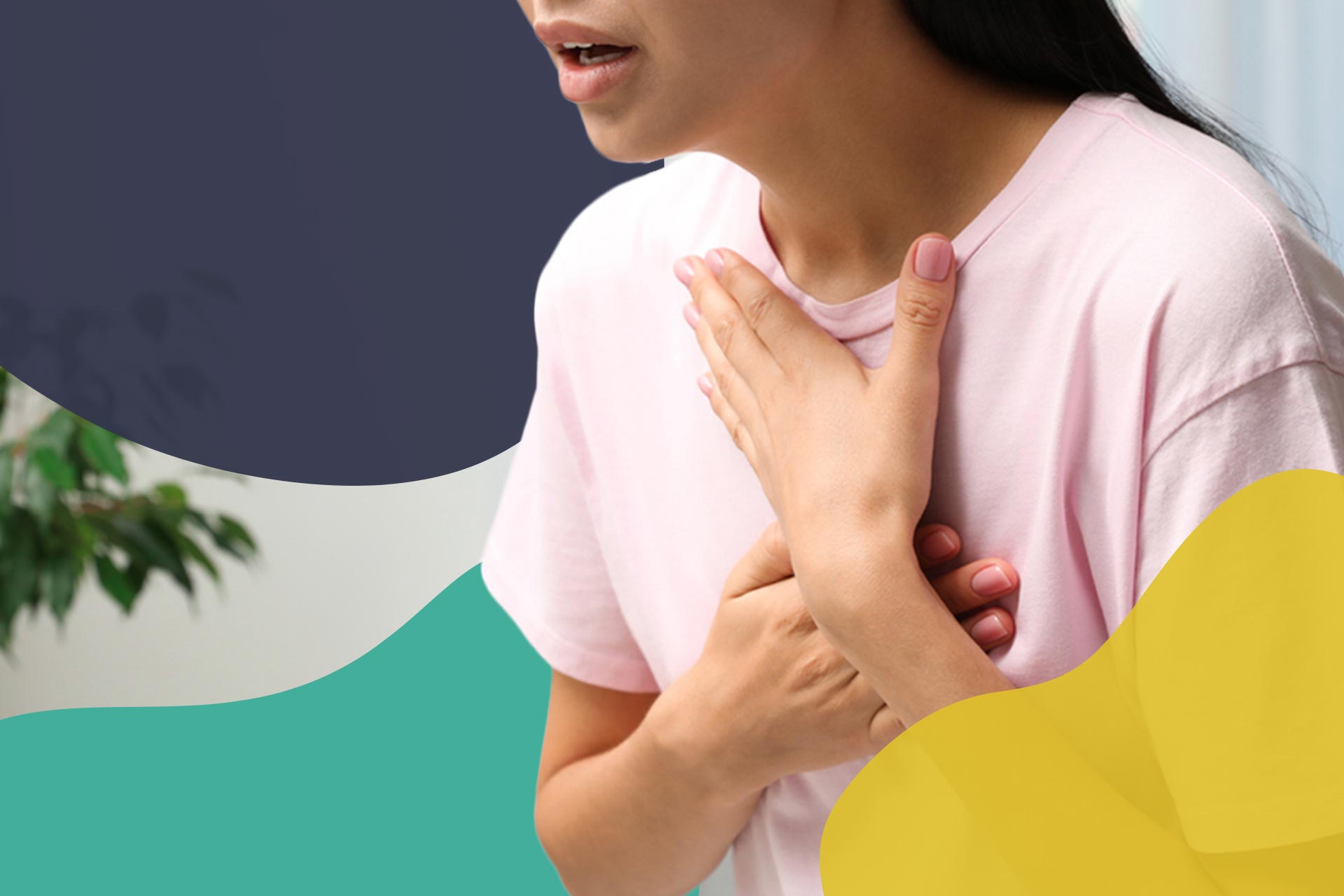
Body + Mind is reader-supported. We may earn an affiliate commission when you buy through some of the links on our site.
One moment, you’re completely fine. The next? You feel a sudden tightness throughout your chest. You may think that this discomfort alludes to a heart attack, but that’s not always the case. In fact, this pain may be a result of many other health issues that you haven’t yet considered.
Take a look at what this symptom could mean.
Men and women experience myocardial infarction differently. That said, there are common signs that you can look for to identify whether or not it’s a possibility. This way, you can know if it’s time to call 911. In addition to chest pain, you may notice:
If your chest pain begins to spread to other areas of your body, like your arms or back, you should contact 911 immediately. It’s always better to be safe than sorry. This way, you can know for sure. Otherwise, you may be able to attribute your chest pain to another problem.
Aside from heart attacks, this pain can allude to many different concerns.
Those with anxiety can sometimes endure panic attacks, where your brain becomes overwhelmed with stress and responds through physical symptoms. Often, people encounter a trigger, which causes them to spiral into a panic attack. For example, if you survive an accident, you could start to breathe faster and experience a tight chest when you see an object that reminds you of that incident.
A panic attack can last for up to 20 minutes. If you can’t determine the difference between a heart attack and a panic attack, pay attention to your chest pain. Anxiety will often cause a sharp stab throughout the middle of the chest, while a heart attack feels more like pressure.
Often, chest tightness happens because you’ve pulled a muscle. Maybe you reached up to grab an item from a shelf, or you lifted a box that was too heavy. Either way, your chest pain may be the result of an intercostal muscle strain.
This specific strain occurs when you overwork one of the muscles that secure your ribs. It’s best to stop any activity as soon as you notice this pain. Be sure to rest as much as possible and apply a cold compress to the area.
If you experience consistent acid reflux or indigestion issues, you may have gastroesophageal reflux disease, otherwise known as GERD. This digestive order causes stomach acid to move back into an individual’s throat, which can cause specific concerns. You may notice a sore throat or excessive saliva, as well.
It’s essential to contact your doctor if you suspect that you have GERD. They can prescribe you the correct medication and check for any potentially related issues.
We don’t always think about physical symptoms when it comes to depression. You may feel sad or worried, but you can experience other negative signs, too. These indicators can include hunger, fatigue and pain. If you sometimes feel a certain chest tightness alongside emotions these various traits, you could have depression.
Through treatments like medication and therapy, you should be able to manage your depression. Be sure to talk to your doctor as soon as possible so that you can find a solution that works for you.
If you feel sudden, pressure-like chest tightness, it’s best to call 911 immediately. Otherwise, you could suffer from any one of these other concerns – or another that’s not mentioned here. Always speak with a medical professional when you suspect that you have a health issue.
Your email address will only be used to send you our newsletter, and at any time you may unsubscribe. For more information, see our Privacy Policy.